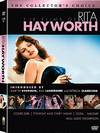





Jean Arthur
Biography | Filmography | Awards | Article | Bibliography | Downloads | Links | Image Credits | MR. SMITH GOES TO WASHINGTON
| Article: |
An Appreciation: Jean Arthur's Legacy of Indelible PerformancesThe actress, who died Wednesday at 90, brought a striking beauty, a unique voice and spirit to the roles that established her fame.by Charles Champlin, Special to the TimesLos Angeles Times, June 21, 1991 F-21Jean Arthur, her longtime pal Roddy McDowall said this week, was "absolutely unique." Grammatically speaking, someone or something is unique or isn't; no qualifications allowed. But McDowall was absolutely right. No other actress in the Hollywood galaxy was even remotely like Jean Arthur. Arthur, who died of heart problems Wednesday in Carmel at 90, brought to the roles that established her fame -- from Calamity Jane in "The Plainsman" onward -- a striking and even patrician beauty and an unforgettable voice you couldn't mistake in a crowd or in pitch darkness. That voice, which some of us can still hear in our dreams, was an enrapturing, split-level croak that somehow made funny lines sound wittier, love lines more deeply romantic and hard lines more urgent and meaningful. It was a voice that could suggest a whole personality. In "Mr. Smith Goes to Washington," it was the voice of a streetwise cynicism, converted to political idealism as a reflection of Mr. Smith's own defiant idealism. And, as so often happened in her roles, she made the drama more intense because she made it even easier to see not only what Jimmy Stewart as the young politician was up against but also what he stood for. Frank Capra knew just what he was doing in casting Jean Arthur in "Mr. Smith Goes to Washington." Then again, he'd known it when he put her opposite Gary Cooper in "Mr. Deeds Goes to Town," where she was, as in the later film, a worldly-wise city woman responding to one of the great and most endearing eccentric innocents in the film archive, who needed all the help he could get in dealing with the world's non-innocents. She was a voice of (relative) sanity in the zany all-star mix of "You Can't Take It With You," and enchanting again in George Stevens' comedy of overcrowding in wartime Washington, "The More the Merrier," for which she won an Academy Award nomination. Jean Arthur was something else. Then again, it seems to me that, with all else, she was a kind of educational force in a way that neither she nor Capra nor anyone else may have thought about consciously. Perhaps to her own generation, but certainly to those of us who were coming on stream a bit later, she was a revelation. To at least one teen-ager in a small town (though I'm sure we were a multitude), Jean Arthur suggested strongly that the ideal woman could be -- ought to be -- judged by her spirit as well as her beauty. It wasn't quite enough to look great on pedestals or magazine covers (both rather remote locations if you thought about it). The notion of the woman as a friend and confidante, as well as someone you courted and were nuts about, someone whose true beauty was internal rather than external, became a full-blown possibility as we watched Jean Arthur. She was nothing so banal as the girl next door, which always hints of a placid demureness, golden and empty. This was a woman of spirit, smart, free, loyal, resilient, loving, not quite tomboyish despite Calamity Jane, but someone who knew a run batted in from a run. (I speak as a teen-ager, remembering.) She was part of our education -- for women, too, I'm sure, because she was an independent spirit before that was entirely OK socially. Later on you could look again and appreciate the artistry that enhanced the special screen persona. Like so many performers of her generation, Jean Arthur had paid what seems like more than her share of dues, as a model then an actress in silent films as early as 1923, then in a blizzard of early sound films whose titles make you wince and whose banality drove her back to the New York stage before she tried Hollywood again and emerged at last as a star after John Ford's "The Whole Town's Talking." The legend is that Gladys Georgianna Greene became Jean Arthur because of her admiration for Jeanne d'Arc and King Arthur. It is as romantic a notion as anything about her. Her Peter Pan was the high point of her later career and the voice was perfect for the part. Television didn't quite know what to do with her, though she and it tried. So we are left with her rich legacy of indelible performances, from Ford to "Deeds" to "Shane." And we are left as well with renewed gratitude that the movies grant a kind of immortality to some of those who have shaped our dreams and, it may even be, our lives. © 1991 The Times Mirror Company |
|
Return to the Jean Arthur main page. |
| Now in Print! |
|---|
| Now on DVD! |
|---|
Buy Videos & DVDs |
|
Buy Movie Posters |
|
Buy Movie Posters |
|
Classic
Movie Merchandise |
|
![]() Printer-friendly version.
Printer-friendly version.
![]() Return
to the top.
Return
to the top.
Last updated:
March 10, 2011.
Reel Classics is a registered trademark of Reel Classics, L.L.C.
© 1997-2011 Reel Classics, L.L.C. All rights reserved. No
copyright is claimed on non-original or licensed material.
Terms of
Use.









